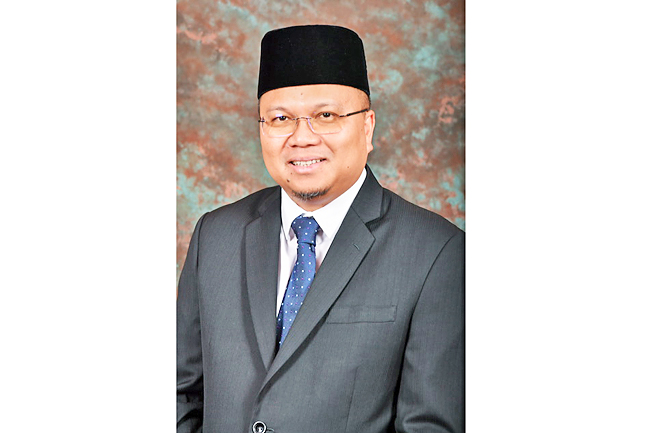James Kon
A total of 294 deaths due to cancer were reported while 682 new cancer cases detected, according to statistics obtained from the Brunei Darussalam Cancer Registry (BDCR) for 2021.
The common types of cancer in the Sultanate for men remain the same as last year, which are colorectal cancer (64 cases), prostate cancer (35 cases) and lung cancer (26 cases).
For women, the most common are breast cancer (104 cases), colorectal cancer (53 cases), uterus cancer (38 cases) and ovarian cancer (33 cases).
Minister of Health Dato Seri Setia Dr Haji Mohd Isham bin Haji Jaafar shared the number of cancer cases in his message for World Cancer Day celebration today.
“Each year, 10 million people around the world pass away from cancer.
“The figure is expected to increase to 13 million by 2030 if no action is taken in terms of prevention and control,” the minister said.
World Cancer Day, he highlighted, “is celebrated on February 4 every year to raise public awareness of the issues related to cancer and to take action to prevent, detect, treat and further reduce its effects”.
This year’s World Cancer Day, he said, “is in the second year of a three-year campaign themed ‘Close the Care Gap’ which revolves around equity issues. The theme of the second year was more about uniting individuals and organisations, advocates and policymakers in calling for change and taking action.

“At the same time, the celebration also honours progress made, not just in the field of medicine but to celebrate minute actions that have made a significant impact, such as helping the closest persons in terms of psychological support; contribution of energy such as transportation to a cancer treatment centre; ensure healthy food choices reasonably offered in schools; or using the hashtag #worldcancerday on social media to raise public awareness.”
About 30 to 50 per cent of deaths from cancer can be prevented and it is associated with several risky behaviours and practices. At the individual level, the public is advised to adopt a healthy lifestyle by not smoking and avoiding exposure to cigarette smoke, maintaining a healthy weight, practising a healthy and balanced diet including ensuring balanced intake of fruits and vegetables every day (two to three portions), reduce excessive fat and increase physical activity by remembering ‘30 in 5’ which is at least 30 minutes a day, five times or more in a week.
In an effort to increase physical activities at the national level, he highlighted that the MoH published the second edition of National Physical Activity Guidelines launched last year. The guidelines contain information as well as recommendations based on scientific evidence to reduce sedentary behaviour.
Recently, the ministry has organised a collective campaign as a country called BNontheMove where each step counts as an initiative to achieve the targetted steps set from time to time.
It is hoped that the campaign can increase physical activities and continue to instil the culture of being active among citizens and permanent residents in Brunei Darussalam.
In addition to practicing a healthy lifestyle, he emphasised that screening tests for detecting cancer at an early stage is one of the efforts that can help increase the chances for a cancer patient to receive better treatment and recover completely.
In Brunei Darussalam, the ministry and Pantai Jerudong Specialist Centre (PJSC) offer screening tests including pap smear for cervical cancer, breast clinical examination as well as mammogram for breast cancer and to check for bleeding in the intestines including colonoscopy for colon cancer. Individuals with a history of cancer in the family and have risk factors are advised to undergo regular examinations and perform genetic screening whenever appropriate.
In terms of cancer treatment and management, the MoH will continue to work with The Brunei Cancer Centre (TBCC) in offering the best cancer treatment services for cancer patients as well as their families involved.
Cooperation from the community including education institutions, associations, NGOs and grassroots leaders in cancer patient management is vital in reducing the effects of cancer.
Any little action done even like listening to a patient’s feelings can give a positive impact to a cancer patient.
The MoH through BDCR recently published a report for the first time, which is the 20-year Cancer Disease Report (2002-2021). The ongoing research and data collection is vital to be used as a basis for policymakers to make future plans and a more systematic direction toward increasing prevention and treatment of cancer. Comprehensive cancer care not only covers reducing the effects of cancer but also the financial burden in costs of cancer care.
By practising a healthy lifestyle such as carrying out beneficial activities and conducting screen tests regularly for the early detection of cancer, the minister stressed “the chances of prevention and a full recovery is high. Therefore, let us all commit and cooperate in bridging the equity gap so that we can achieve the second goal of Brunei Vision 2035 which is ‘High Quality of Life’”.







